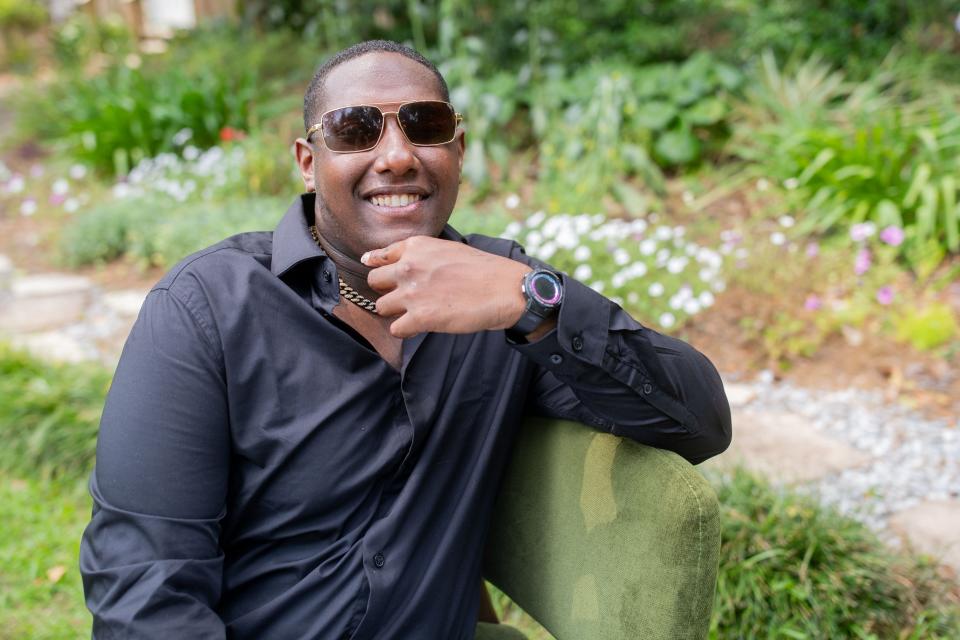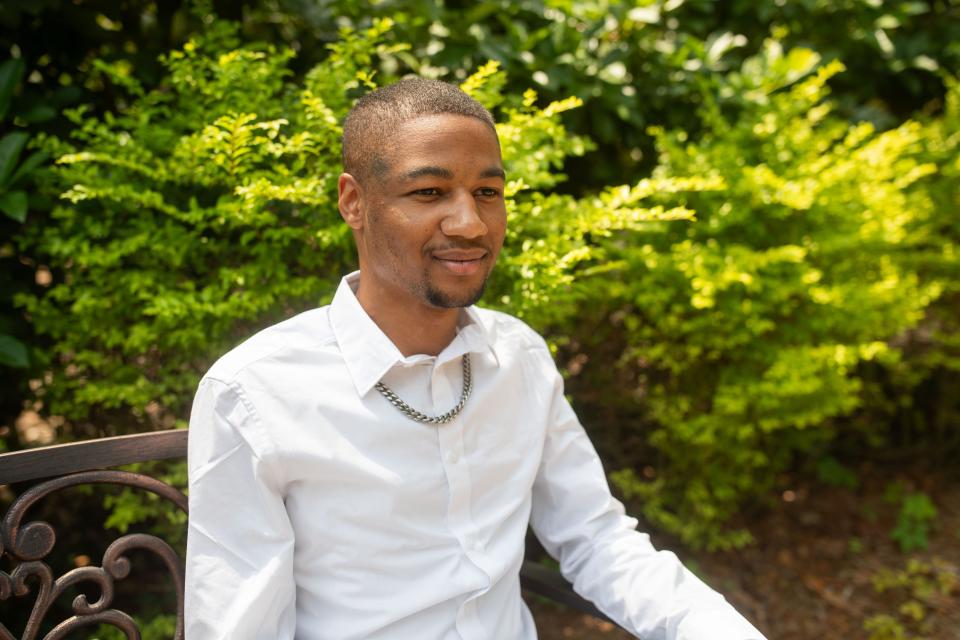At 13 years old, Joe Sullivan was told he would die in prison.
The then-teenager’s life came crashing down around him after he was convicted and sentenced to life in prison for robbing and sexually assaulting a woman with a group of friends.
“Don’t worry, don’t worry,” said the 48-year-old Sullivan, who has a documented mental disability, in an attempt to console his mother while she cried at his sentencing hearing. “I’ll be free real soon.”
And after a lengthy appeal that made it all the way to the U.S. Supreme Court — a ruling that later set precedent for all juveniles facing similar fates — Sullivan was able to escape a life behind bars, being freed 28 years later.
But not before being scarred by Florida’s state prison system.
Statewide statistics show that more and more children across Florida are being thrown into the adult criminal justice system each year. According to the Florida Department of Juvenile Justice’s Delinquency Profile, 798 juveniles were arrested and treated as an adult at least once in 2022-23, up from 769 in 2021-22.
Children can enter the adult system either by a judicial waiver, which is when a child starts in the juvenile system then is transferred to the adult system, or is “direct filed” by prosecutors, meaning their case is heard in adult court from the start.
The last two fiscal years show a steady increase toward higher pre-pandemic numbers after a significant drop between fiscal year 2018-19, which had 880 juvenile arrests and transfers, and 2020-21, which had 729 juvenile arrests and transfers.
“It is something that is pervasive in our community right now,” said Jessica Yeary, the elected public defender for the Second Judicial Circuit.
Typically, children in adult prisons are locked away in solitary confinement until they turn 18 as a means to protect them from other inmates. But while being housed separately may sound safer, it is severely restricting and mentally detrimental, Yeary said, making a stint in an adult jail or prison even more damaging for children.
Every time Sullivan rolls up his sleeves, the scars lining his forearms from when he cut himself “trying to get away” serve as reminders of the darker years he lived through. He spent several years in solitary confinement during his early years in prison. But regardless of where he was kept, he said prison was rough and terrifying.
Punishment vs. rehabilitation
Children sometimes make decisions based on a lack of maturity, Yeary said, but the goal of the system can’t be to engrain in children’s minds that they aren’t good for anything other than spending their life in a cell.
The juvenile system is supposed to be rehabilitative in nature through counseling and programming, she said. But the adult system is punitive in nature, and the goal is punishment.
“They’re just so much more vulnerable and susceptible to the harsh reality of incarceration,” she said.
Children transferred to the adult system are separated from their family, friends, schools and activities at a very young age, which leaves lifelong consequences, she said.
Locking up a child increases the chance of delinquent behavior. In fact, Yeary said, children filtered through the adult system are 34% more likely to end up back in prison with more violent offenses than those prosecuted in the juvenile system.
In Florida, the state attorney has sole discretion over whether the child will be directly filed into the adult system or remain in the juvenile system. There isn’t a motion that the defense can file to get a client back into juvenile court, she said.
“So we do our part to very much advocate for children in this way to acknowledge the harsh reality of the adult system and to advocate for the trauma that they’ve gone through, the adverse childhood experiences in their lives,” she said.
Yeary is dedicated to ensuring children are treated the way they deserve to be treated in the adult system: “Treat them as children, not as hardened criminals deserving of decades in prison.”
“If there’s anyone else who deserves compassion and a second chance, it’s children,” she said. “They’re capable of change.”
‘I am a vessel’
Sullivan, of Pensacola, will never forget the judge who stared at him from the across the courtroom and said: “I’m going to send you away for a long, long time. You might never get out of prison.”
He said he chuckled when the judge told him that back in 1989, not thinking he was serious. “But he was dead serious,” Sullivan said.
From that point on, life would never be the same, as prison slowly drained his physical and mental well being. Sullivan saw violent beatings, stabbings and even murders in prison every day, each one leaving a lasting impression.
And over time, Sullivan developed multiple sclerosis that doctors attributed to the trauma of prison and the wrong prescription of anxiety medications, eventually leaving him bound to a wheelchair.
At his lowest points, Sullivan tried to take his life by cutting himself and hanging himself. But with every failed attempt, Sullivan said he heard God speaking to him: “That’s not going to work.”
So Sullivan chose to do one thing to survive life behind bars: Pray until something happens.
And in 2009, something finally happened.
The high court agreed to hear Sullivan’s case after an appeals court upheld his original conviction. His attorney argued that sentencing a juvenile to life in prison without the possibility of parole was considered cruel and unusual punishment and violates the Eighth Amendment.
A year later, the SCOTUS justices agreed.
His case was one of two landmark court cases that successfully argued a life sentence was unconstitutional for a juvenile that committed a non-homicide offense. The decisions have helped kids everywhere who were in danger of seeing the same outcome as Sullivan during trial.
“I am a vessel” for greater change, he said.

Changed lives and second chances
When Sullivan was released from prison in 2017, he said it didn’t feel real.
A few years later he became the first resident to move into the Joseph House, a Catholic ministry and reentry home for former prisoners in Tallahassee, when it opened in 2019.
And within the last month, “two new brothers” moved into the home who were recently released from adult institutions after going into the system as children just like Sullivan.
Martez Royal, of Jacksonville, got out of prison April 18 after being sentenced to 10 years for robbery and battery on a first responder at 16 years old. Elijah Pippin, of Tallahassee, got out of prison April 26 after being sentenced to 4 years for robbery, kidnapping, grand theft of a motor vehicle and burglary of an occupied dwelling at 17 years old.
About three days before Pippin thought he was going to be released from the juvenile system’s custody, his attorney came to him and said: “I can’t do anything for you. They’re going to adjudicate you.”
“And like my whole world crashed,” Pippin said.
When Royal found out he was being tried as an adult, he said he immediately thought, “I won’t be able to see my family again. Will I survive in here?”
Royal, 25, was in and out of solitary confinement throughout his 10 years. Pippin, 21, started out in solitary confinement for four months, and he said it drove him crazy. He said it was inhumane and like putting a dog in a cage.
And to survive, both Pippin and Royal figured out fast that it requires you to mind your own business and show respect. It was generally every man for themselves because the system didn’t protect them from institutional corruption and inmate-on-inmate violence.
But they both said there were good people in prison who they each looked to as mentors during the time they served.

Once you get out, it’s hard to believe you’re free, Pippin said. “It’s the small things that you can tell you’re institutionalized,” he said.
“I had grown up in prison,” Royal said. “So prison kind of changed my mentality.”
Prison breaks you, he said. “It broke me so bad, but it built me too,” he added.
While the two men served their time, they both knew they were getting out and getting a second chance. Now the two are focused on getting an education at Tallahassee Community College and securing jobs.
“There’s no way I’m going to let my charges stop me,” Pippin said.
“The streets are calling, but I’m not trying to go in the streets,” Royal said. “I don’t want to go back.”
Both Royal and Pippin are navigating the struggles of life after prison, and they are willing to do whatever it takes to build new lives for themselves.
With odds stacked against them, they said they are determined to not become another recidivism statistic and prove that kids with histories like theirs are in fact destined for more than just a life behind bars.
Breaking & trending news reporter Elena Barrera can be reached at ebarrera@tallahassee.com. Follow her on X: @elenabarreraaa.
This article originally appeared on Tallahassee Democrat: Former Florida inmates share prison time as juveniles: ‘It broke me’
Signup bonus from




